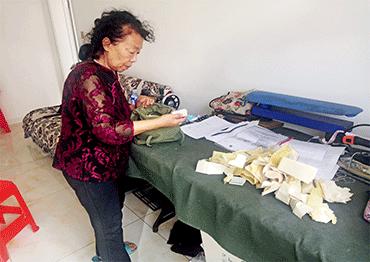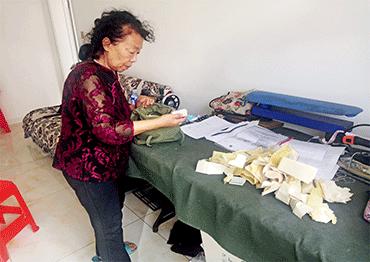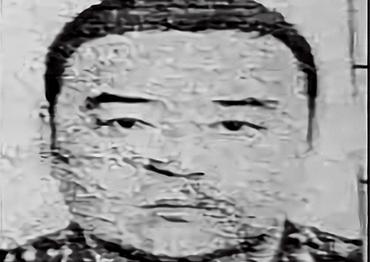But Han said she is not satisfied. “I want to know why on earth Batmenkh was released. I want the truth,” she said.
Han showed NewsChina a government response to her petition dated June 19, 2019 that said authorities would investigate the Chen Barga Banner PSB for not properly monitoring Batmenkh during his medical parole. It also read that two officials involved in enabling Batmenkh’s political career were punished.
According to the WeChat account of the Inner Mongolia Autonomous Region Political and Legal Affairs Commission, provincial judicial authorities set up a team to investigate Batmenkh’s release and pledged to make the results public.
Han told NewsChina that when members of the team visited her on September 8, she gave them a list of people she believed were responsible. The list named former senior judicial officials from Chen Barga Banner, as well as Batmenkh’s mother and uncle, who were also local officials according to media reports. Also listed was Batmenkh’s cousin, named by media as Baiyintala (transliteration), deputy director of the Chen Barga Banner People’s Congress. When Batmenkh was arrested for homicide, Baiyintala was working with the local disciplinary inspection committee.
However, no official source has confirmed Baiyintala’s involvement or his relationship to Batmenkh.
The case involves other suspicious circumstances. Han said local authorities told her all the documents about Batmenkh’s medical parole and records from his time at the detention center were missing. Several officials involved in his medical parole have since either died or, after 27 years, were too old to recall the case in detail.
“Batmenkh’s case is very serious and has severely hurt the victim’s family. But given the case’s long timespan and list of people of interest, an investigation will take time,” Li Wenhe, current Party secretary of the Chen Barga Banner Politics and Law Committee, told NewsChina. “But despite these difficulties, we’ll do a thorough job and hold those responsible to account to address any public concerns.”
Those concerns involve similar cases of corruption. Just one week after Batmenkh’s case was made public, the Discipline Inspection Committee of the CPC Central Committee announced that 65 officials and government employees in Inner Mongolia had been punished for falsifying parole documents in the case of Wang Yunhong, a man who had been sentenced to death for murder with a two-year reprieve. His penalty was later reduced to 15 years in prison.
Another controversial case emerged last year, when Sun Xiaoguo, a high-ranking member of an organized crime ring in Yunnan Province who had been sentenced to death over two decades earlier for homicide and rape, was falsely released on medical parole. Found guilty of organized crime and based on his two previous convictions, Sun was executed in February 2020.
Law experts partly attribute these cases to China’s two regulations on the implementation of medical parole passed in 1990. The regulations laid out the conditions of eligibility for medical parole, such as terminal disease, severe chronic illness and advanced age, and limited its application to lesser offenses, which experts say was outdated and did not address more recent trends in criminal activity.
Although the regulations were replaced by the 2014 regulation on temporary probation which combined and partly updated the 1990 regulations, experts find it still places too much power in the hands of prisons and not enough with supervision authorities. For example, prisons must provide medical and approval documentation to authorities, but there are no specific details on supervision or monitoring of medical parole cases.
“Zhimian fuxing cases have rung the alarm that we should increase punishments for illegal parole and improve institutions and systems to plug all potential loopholes,” read a China Central Television (CCTV) commentary about Wang Yunhong’s case published on its website on September 17.

 Old Version
Old Version

